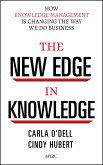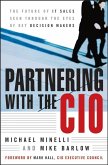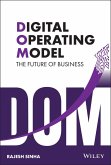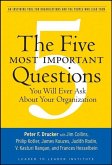Dieser Download kann aus rechtlichen Gründen nur mit Rechnungsadresse in A, B, BG, CY, CZ, D, DK, EW, E, FIN, F, GR, HR, H, IRL, I, LT, L, LR, M, NL, PL, P, R, S, SLO, SK ausgeliefert werden.
"This timely book adds a new dimension to the strategy debateand sources of competitive advantage. Its topic, strategicforesight, is most crucial in turbulent environments, in whichchange is frequent and disruptive. The authors show that not somuch a superior vision, appropriate plan, generic strategy,innovative culture or unique resource-pool, but rather strategicforesight differentiates successful firms from failing firms. Infact, unlearning and relearning may be one of the most importantoutcomes." Professor Henk W Volberda, Rotterdam School ofManagement, Erasmus University
"Strategic foresight is central to managing the future, yet itis one of the least understood areas of management. Tsoukas andShepherd offer a collection of readings that serve to deepen ourunderstanding of what organizational foresight is, and what ittakes to do it well. Designed for the reader who seeks more than asuperficial overview, it offers jewels of insight and a variety offrameworks that serve to challenge and enrich our mental maps aboutdeveloping organizational foresight." Mary Crossan, Universityof Western Ontario
"Hari Tsoukas, Jill Sherpherd and the other contributors of thisbook provide a compelling vision as to why the 'future could beours to manage.' This is a thought-provoking book that offers waysby which individuals can develop foresight." Raghu Garud, NewYork University
"This is really good material, from good scholars, onthis emerging field. It will attract a wide audience." ColinEden, University of Strathclyde
"This book brings together different perspectives on anincreasingly challenging question: just how might managers copewith the bewildering changes that are occurring in the world aroundthem. The book raises more questions that it answers perhaps; butthat is for the good: they are questions that need to be raised toinform a research agenda that is, and will increasingly become,central to management needs." Gerry Johnson, StrathclydeUniversity









